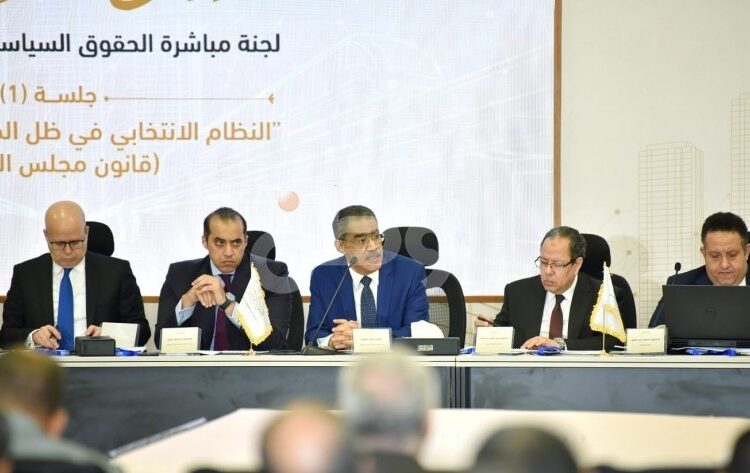The Coordinator-General of the National Dialogue, Diaa Rashwan, has stressed that the process is open to every idea that is constitutional and with no red lines.
Rashwan made the remark while speaking yesterday to the first session of the National Dialogue’s Committee on the Exercise of Political Rights Exercise and Parliamentary Representation. The committee’s task is part of the dialogue’s political axis.
With wide participation by representatives of various political parties and forces, the session’s theme was a consideration of the election system in light of the constitution.
“The Dialogue has actually kick-started, and partners to the process have therefore quashed skeptics’ rumours,” Rashwan told the session, noting that the modalities of conducting House of Deputies (parliament) elections marked the beginning of committee discussions.
It’s up to participants in the dialogue to reach accord on the election system, the coordinator-general said, noting that so far there is no particular trend or a proposed system.
Should accord be reached on one particular system, the proposal would be submitted to the president, he said, adding that in case of drafting more than one proposal, they all would be submitted to the president for due action together with the parliament.
Scores of representatives of various political trends intellectuals, professionals and trade unions are taking part in the dialogue that addresses political, economic, and social issues.
Rashwan expressed appreciation to the political leadership for offering the opportunity of the National Dialogue, which has been meticulously pursued at the highest level.
For his part, the Dialogue’s Political Axis Rapporteur, Political Science Professor Aliyuddin Helal, stressed that the national dialogue is safeguarded by the availability of the political will together with the sincere intentions towards the process, the Middle East News Agency (MENA) reported.
The existence of several axes, committees and topics, Prof Helal said, indicates sharing one target: transitioning to building a modern state. Discussion of the issue of political representation, he added, aims to achieve such a sound representation that reflects the will of citizens.
Meanwhile, the Rapporteur of the Dialogue’s Human Rights and Public Freedoms Committee, Nivene Mossad, emphasised that the success of the process is a common responsibility since the dialogue is not just a platform for exchanging views and opinions but aims to bring about a shift in legislation and policies.
Speaking to the committee’s first session, devoted to the theme of eliminating all forms of discrimination, she said that the committee would address several issues pertaining to human rights and public freedoms, including the freedom of opinion and expression, academic freedoms and anti-discrimination, MENA reported.
Emphasis on the elimination of all forms of discrimination, she said, is one of the most important topics to which the state is paying attention, adding that Egypt abides by all anti-discrimination agreements, the news agency reported.
She also underscored that the 2014 Constitution stresses equality between Egyptian citizens and the elimination of all forms of discrimination as has also been provided for under the third principle of the National Strategy for Human Rights and the 2030 Strategy.






Discussion about this post